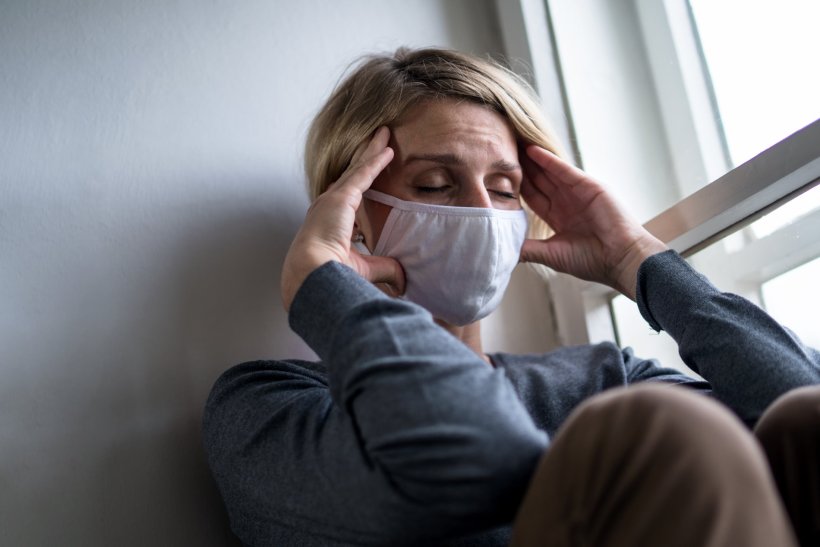
Image source: Adobe Stock/Halfpoint
News • Decrease in wellbeing
Covid-19 pandemic has devastating effect on mental health, study shows
People in the UK have experienced a “substantial decrease” in mental wellbeing since the start of the Covid pandemic - according to new research from the University of East Anglia (UEA) and University of York.
The new study, published in the journal Health Economics, investigates how the pandemic has impacted the mental health of the nation over time. It shows a prolonged detrimental impact on mental health. And the research team fear that people’s mental wellbeing could get worse with repeated outbreaks of the pandemic in the longer term.
More people reported being unhappy and depressed in the second period of lockdown. In contrast fewer people were worried about playing a useful role, which was most affected in the first wave of the pandemic. But not everyone has been affected equally. Women in their twenties and early thirties experienced the biggest increase in mental health problems. Meanwhile older men were found to be least impacted by the pandemic.
During the first two lockdowns, demographic factors contributed to mental health inequality. We found that younger women aged between 20 and 34 suffered most in all age and gender groups
Apostolos Davillas
Researchers studied data from the UK Household Longitudinal Study (UKHLS), which launched a Covid-19 survey to examine the impact of the coronavirus pandemic. They looked at levels of socioeconomic inequality and psychological distress in 2019, before the pandemic hit, and followed people’s mental health through two waves of the pandemic up to March 2021. The study included 8317 participants. The research team studied twelve indicators including things like not being able to concentrate, make decisions, or enjoy day-to-day activities, experiencing sleep problems and feelings of depression and worthlessness. They found that the pandemic had caused significant declines in overall mental health between April 2020 and March 2021. And that the distribution of mental health problems within the population became more unequal.
Dr Apostolos Davillas, from UEA’s Norwich Medical School, said: “People’s mental health worsened during the first wave of the pandemic. And the second wave was associated with an increase in the prevalence and variability of psychological distress. So the pandemic has had a prolonged detrimental influence on people’s mental health. During the first wave of Covid, we found that people’s ability to enjoy day-to-day activities and play a useful role were most impacted. In the second wave, people were experiencing problems with decision making, depression, unhappiness, and poor concentration. During the first two lockdowns, demographic factors contributed to mental health inequality. We found that younger women aged between 20 and 34 suffered most in all age and gender groups. Meanwhile older men aged over 65 were the least distressed group. The reasons for people’s unhappiness will likely include direct exposure to Covid-19, the passing of loved ones, greater responsibility for caring for others, financial hardship, job losses, quarantine, working from home, the impact of shielding, social isolation, loneliness, and differences in the burden of home schooling and housework.”
Source: University of East Anglia
20.02.2022











